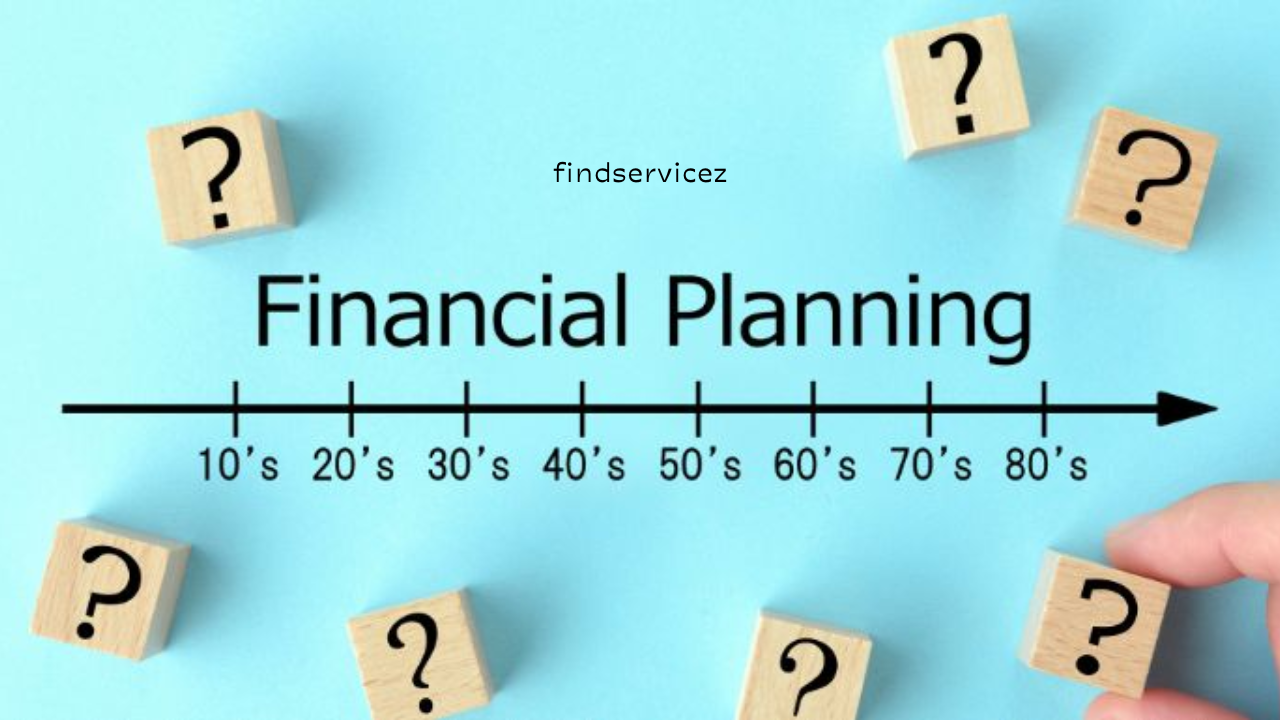Millennials, born between 1981 and 1996, are now in their late 20s to early 40s. As this generation enters its prime earning years, financial planning becomes more critical than ever. With mounting student loan debt, rising living costs, and uncertain economic conditions, millennials must take a proactive approach to managing their finances.
The financial landscape in 2025 demands strategic planning, adaptability, and tech-savviness. This guide offers a comprehensive financial planning roadmap, covering budgeting, saving, investing, debt management, retirement planning, and more.
1. Understanding the Financial Landscape in 2025
Rising Costs and Inflation
In 2025, millennials continue to face inflation-driven expenses. With housing, healthcare, and daily living costs increasing, effective financial planning is essential. According to financial forecasts, inflation is expected to remain around 3-4%, making it necessary for millennials to prioritize income growth and inflation-adjusted investments.

Gig Economy and Job Flexibility
The gig economy is stronger than ever, with more millennials opting for freelance, contract, or remote work. Financial planning strategies must include irregular income management, multiple income streams, and tax planning for self-employed individuals.
Tech-Driven Financial Tools
Fintech apps and AI-powered platforms simplify budgeting, investing, and expense tracking. In 2025, using digital financial advisors, automated savings apps, and robo-advisors is the norm for millennials looking to optimize their finances.
2. Setting Clear Financial Goals
Short-Term Goals (1-3 Years)
-
Emergency Fund: Aim to save 3-6 months’ worth of expenses.
-
Debt Repayment: Prioritize paying off high-interest debts, such as credit cards.
-
Major Purchase: Save for large expenses like a car, wedding, or home down payment.
Medium-Term Goals (3-7 Years)
-
Home Ownership: Plan for a property purchase with a 20% down payment.
-
Career Development: Allocate funds for certifications or advanced degrees.
-
Travel or Experiences: Budget for meaningful experiences or sabbaticals.
Long-Term Goals (7+ Years)
-
Retirement Savings: Contribute to retirement accounts like 401(k) or IRA.
-
Wealth Building: Invest in stocks, mutual funds, or real estate.
-
Children’s Education: If you have or plan to have children, consider 529 plans or education savings accounts.
3. Budgeting for Millennials in 2025
50/30/20 Budget Rule
Millennials in 2025 can benefit from the 50/30/20 rule, a simple and effective budgeting method:
-
50% Needs: Rent, utilities, groceries, insurance, and debt payments.
-
30% Wants: Dining out, entertainment, vacations, and hobbies.
-
20% Savings and Debt Repayment: Emergency fund, investments, and extra debt payments.
Budgeting Tools and Apps
Utilize budgeting apps to automate and track spending:
-
YNAB (You Need a Budget): Helps with goal-based budgeting.
-
PocketGuard: Prevents overspending by showing available funds.
-
Mint: Tracks income, expenses, and investments.
Reducing Discretionary Spending
To free up more funds for savings and investments:
-
Cancel unused subscriptions: Review and eliminate services you no longer use.
-
Meal planning: Reduce food expenses by cooking at home.
-
Automate bill payments: Avoid late fees and missed payments.
4. Debt Management Strategies
Prioritizing High-Interest Debt
Credit card debt and personal loans often carry high interest rates. To manage them:
-
Avalanche method: Pay off the highest interest debt first.
-
Snowball method: Pay off the smallest debt first to build momentum.
Student Loan Repayment
Millennials still carrying student loans should:
-
Refinance: Secure lower interest rates if possible.
-
Use income-driven repayment plans: Cap payments based on your income.
-
Make extra payments: Pay down the principal faster when possible.
Avoiding Lifestyle Inflation

As income rises, avoid increasing expenses proportionately. Instead, direct additional income toward debt repayment or investments.
5. Building an Emergency Fund
An emergency fund is essential for financial security. In 2025:
-
Goal: Save at least 3-6 months’ worth of expenses.
-
Where to keep it: Use a high-yield savings account (HYSA) for accessibility and interest growth.
-
Automation: Set up recurring transfers to consistently build your fund.
Why Millennials Need an Emergency Fund
-
Job market instability: Gig economy workers may face income fluctuations.
-
Healthcare costs: Medical expenses can be substantial.
-
Unexpected expenses: Car repairs, home maintenance, or family emergencies.
6. Investing for Wealth Growth
Stock Market Investments
Millennials should leverage long-term investing strategies:
-
Index funds and ETFs: Low-cost, diversified investments.
-
Individual stocks: For those comfortable with market analysis.
-
Dividend stocks: Provide passive income.
Retirement Accounts
-
401(k) or 403(b): Maximize employer contributions.
-
Roth IRA or Traditional IRA: Tax-advantaged retirement savings.
-
Solo 401(k) or SEP IRA: For freelancers and self-employed individuals.
Real Estate Investing
Real estate remains a solid investment option:
-
Rental properties: Provide passive income and long-term appreciation.
-
REITs (Real Estate Investment Trusts): Lower-cost real estate investments.
Cryptocurrency and Alternative Assets
While cryptocurrencies remain volatile, some millennials allocate small portions of their portfolio to:
-
Bitcoin or Ethereum: Long-term holds.
-
Stablecoins: For stability and quick liquidity.
-
NFTs or digital assets: High-risk, speculative investments.
7. Retirement Planning for Millennials
Start Early, Even with Small Contributions
Time is millennials’ greatest advantage. Even small, regular contributions to retirement accounts will benefit from compound growth.
Retirement Contribution Tips
-
Max out employer-matched contributions: If your employer offers a match, contribute enough to get the full match.
-
Increase contributions with raises: Allocate a portion of each raise to retirement savings.
-
Use catch-up contributions: For those approaching 50, contribute more to retirement accounts.
Planning for Longevity
With life expectancies increasing, millennials must plan for longer retirements. Aim for a diversified portfolio to sustain income throughout retirement.
8. Tax Planning Strategies
Maximize Deductions and Credits
Take advantage of tax breaks:
-
Retirement account contributions: Tax-deductible in many cases.
-
Health Savings Account (HSA): Triple tax benefits for healthcare expenses.
-
Charitable donations: Lower your taxable income.

Side Hustle Tax Considerations
Freelancers and gig workers need to:
-
Track all expenses: Write off business-related costs.
-
Set aside taxes: Save 20-30% of freelance income for taxes.
-
Use tax software: Automate quarterly payments and deductions.
9. Insurance for Millennials
Health Insurance
Health insurance is essential to protect against unexpected medical expenses:
-
Employer-sponsored plans: Choose a plan with good coverage.
-
Marketplace plans: For self-employed individuals.
-
HSA: For tax-advantaged medical expense savings.
Life Insurance
If you have dependents, consider:
-
Term life insurance: Provides affordable coverage.
-
Whole life insurance: Includes a cash value component but costs more.
Disability Insurance
Disability insurance replaces lost income if you cannot work due to illness or injury:
-
Short-term coverage: Up to six months.
-
Long-term coverage: Until retirement age.
10. Estate Planning Basics
Estate planning is crucial, even for millennials:
-
Will and Testament: Designate how assets will be distributed.
-
Power of Attorney: Assign someone to make financial decisions if you become incapacitated.
-
Beneficiary Designations: Ensure retirement accounts and life insurance policies have up-to-date beneficiaries.
Financial planning for millennials in 2025 demands a proactive, strategic, and adaptable approach. With rising costs, evolving job markets, and technological advancements, millennials must focus on building financial stability through smart budgeting, consistent saving, and disciplined investing.
By prioritizing debt repayment, growing their income streams, and taking advantage of tax-efficient investment strategies, millennials can secure their financial future and build long-term wealth. The key is to remain flexible, regularly review financial plans, and leverage technology to make smarter financial decisions.
